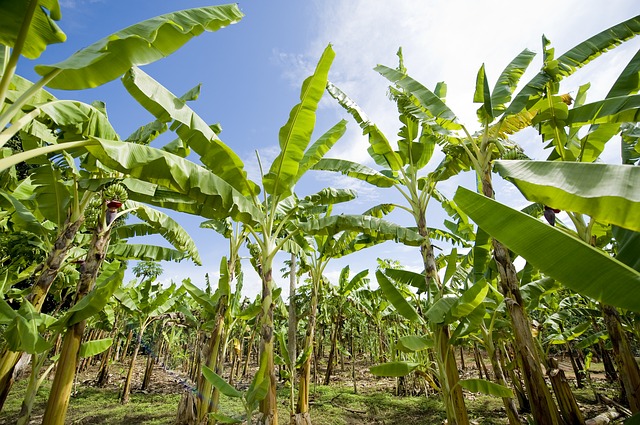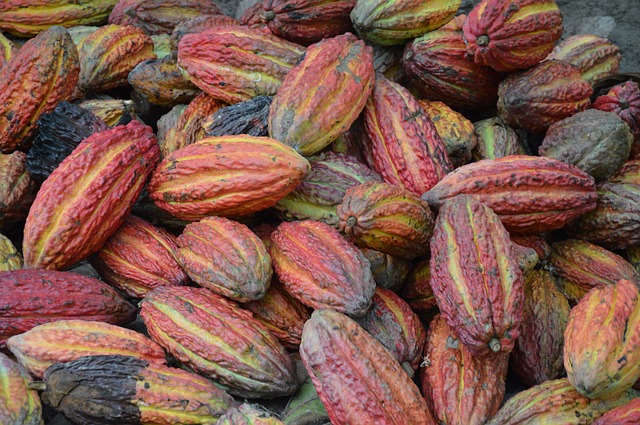At the round table held on 27 February at the Paris International Agricultural Show, the Foundation for World Agriculture and Rurality (Fondation pour l’Agriculture et la Ruralité dans le Monde – FARM) presented a report on the stakes for the palm oil sector in Côte d’Ivoire, the result of a field study to assess the situation and suggest courses of action to meet the multiple challenges facing the sector.
 The palm oil sector in Côte d’Ivoire provides a direct or indirect livelihood for nearly two million Ivorians – 10% of the population – and exports nearly half of its production to other African countries. It must, to ensure its survival, commit to a course that is more sustainable – economically, socially and environmentally. The key elements of this transformation: increased yields from small planters, to meet growing demand without deforestation; improved services offered by the cooperatives, which are threatened by increased competition from intermediaries; finally, the implementation of better traceability of palm bunches, for tighter contractual relationships with processing companies and an effective certification scheme. The competitiveness of Ivorian palm oil in relation to imports from South-East Asia depends on these changes. They can only be achieved with strengthened collective systems under the guidance of inter-professional bodies and with the support of the Ivorian State and international investors.
The palm oil sector in Côte d’Ivoire provides a direct or indirect livelihood for nearly two million Ivorians – 10% of the population – and exports nearly half of its production to other African countries. It must, to ensure its survival, commit to a course that is more sustainable – economically, socially and environmentally. The key elements of this transformation: increased yields from small planters, to meet growing demand without deforestation; improved services offered by the cooperatives, which are threatened by increased competition from intermediaries; finally, the implementation of better traceability of palm bunches, for tighter contractual relationships with processing companies and an effective certification scheme. The competitiveness of Ivorian palm oil in relation to imports from South-East Asia depends on these changes. They can only be achieved with strengthened collective systems under the guidance of inter-professional bodies and with the support of the Ivorian State and international investors.
A strong sector, but facing a crisis of economic, social and environmental sustainability
In Côte d’Ivoire, the palm oil sector has very high economic, social and environmental stakes.
The Palm Oil Inter-professional Association (AIPH), the sector’s linchpin: stability in the sector relies on the complementarity of industrial and village production. The AIPH brings together major agro-industrial corporations working with nearly 40,000 small planters, who hold two thirds of the planted land and are managed through cooperatives which are very active on harvesting, training and maintaining tracks. It acts at several levels: increasing the productivity of village planters, thanks to the use of improved plant materials and the adoption of suitable technical pathways; training and awareness-building for producers on the problem of deforestation, particularly in relation to climate change; setting and evening out prices paid to planters; research and promotion.
 Production that is central to the fight against deforestation: seen from France, the palm oil debate tends to polarise around imports from the countries of South-East Asia. However, in the context of Côte d’Ivoire, and more generally of West Africa, the vast majority of palm oil production is not exported to Europe, but consumed locally, almost exclusively as food. This does not make deforestation any less of a problem, since Côte d’Ivoire has already lost most of its forest, in particular through the expansion of areas under cultivation.
Production that is central to the fight against deforestation: seen from France, the palm oil debate tends to polarise around imports from the countries of South-East Asia. However, in the context of Côte d’Ivoire, and more generally of West Africa, the vast majority of palm oil production is not exported to Europe, but consumed locally, almost exclusively as food. This does not make deforestation any less of a problem, since Côte d’Ivoire has already lost most of its forest, in particular through the expansion of areas under cultivation.
A major sector with strong growth potential: almost all palm bunches are processed locally, within a sector that contributes to food security, provides a direct or indirect living for 10% of the population and generates around 2% of Côte d’Ivoire’s GDP. Demographic expansion in sub-Saharan Africa and inhabitants’ increased consumption of fats, associated with higher incomes, offer Ivorian producers an excellent potential market, which is however threatened by Asian palm oil exports.
A sector impacted by increased competition and a sharp fall in global prices for vegetable oils: low prices, at only half their historic peak, are compromising the sector’s economic stability. Although in the short term, some balance is being restored through the inter-professional mechanism to even out prices, the viability of village plantations and the cooperatives is being undermined, operating at a loss. The problem is exacerbated by huge expansion in the informal sector, which skews competition and deprives the State and sector of financial resources, and by the lack of regulatory provisions to compel all operators to comply with inter-professional agreements.
A necessary improvement in sustainability through increased productivity, production traceability and the mobilisation of all involved
Forecasts of major increases in palm oil consumption, in the national and sub-regional markets, are favourable for the economy of the sector, but development must be accompanied by greater social and environmental sustainability. The key elements of this transformation are increased productivity from small planters, to improve their income and meet increased demand without increasing deforestation; improved services offered by the cooperatives and the implementation of better traceability of palm bunches, for tighter contractual relationships with processing companies and an effective certification scheme.
The productivity of small planters, a key challenge: yields from village plantations are three to five times lower than those from industrial plantations. Increasing these yields depends in particular on access to fertilizers, which in turn is dependent on access to credit at a level affordable to small producers.
 Improving services from cooperatives: negatively impacted by the diversion of a significant portion of bunch production into the informal sector, and by increased competition from intermediaries, the cooperatives must offer producers services with greater added value. Their role is essential for training and awareness-building for planters on the technical economic and environmental challenges.
Improving services from cooperatives: negatively impacted by the diversion of a significant portion of bunch production into the informal sector, and by increased competition from intermediaries, the cooperatives must offer producers services with greater added value. Their role is essential for training and awareness-building for planters on the technical economic and environmental challenges.
Improved traceability of palm bunches: the ability of industrial producers to guarantee the origin of palm bunches, by plot and producer, can promote closer coordination between the various actors in the sector. It is also essential for the implementation of effective certification, guaranteeing compliance with social and environmental standards.
The need to strengthen inter-professional bodies: to successfully meet the multiple challenges it faces, the sector must be able to mobilise all actors, to block the actions of “stowaways” who skew competition and damage representation to the authorities.
The need for more State regulation: the challenges of sustainable development do not fall solely to the private sector. The role of the authorities is crucial in limiting the informal sector through appropriate taxation, ensuring compliance with customs-protection from imported oils, guaranteeing food safety of oils put on the market, and proper protection of forests. Operators ask the state to police the regulation of the sector more effectively, ensuring the proper application by all actors of the inter-professional agreements.
The essential support of investors: the palm oil sector contributes to the country’s food security. It provides a stable income for nearly 200,000 people: village planters and their families. It enables households to send their children to school and to access basic services and utilities – electricity, clean water, etc. – as well as health facilities provided by some industrial producers. The sector also creates numerous jobs in processing, as well as services connected to the industry (transport, handling, maintenance, etc.); it is central to regional planning. Essential public goods, such as forest conservation and biodiversity, are dependent on its sustainable development.
***
About FARM:
The Foundation for World Agriculture and Rurality (Fondation pour l’Agriculture et la Ruralité dans le Monde) was established in 2005 and granted public utility status in 2006. It is a think-tank that aims to promote agriculture and food production that is productive, sustainable and respects producers and consumers. It prioritises an entrepreneurial approach to agriculture.




